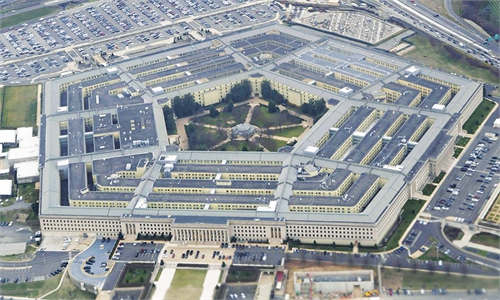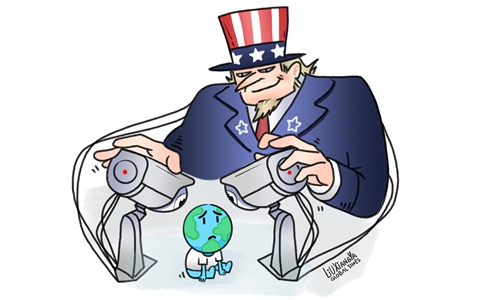KUALA LUMPUR -- Asia's megacities often undergo surprising metamorphoses in short amounts of time. Kuala Lumpur is one such example. When I visited the city in late October, I was amazed at how much it had modernized since I visited nine years ago.
Urban rail lines now crisscross the city, with new shopping malls sprouting everywhere. Particularly eye-catching was Merdeka 118, a 118-story skyscraper completed earlier this year. The 678-meter tower -- the world's second-tallest after the Burj Khalifa in Dubai -- is a symbol of the country's growing affluence. Its spire was designed to evoke the image of Tunku Abdul Rahman, Malaysia's first prime minister, raising his hand as he proclaimed national independence in 1957.
Malaysia over the past few years has experienced a rapid turnover of prime ministers, though the political situation seems to have stabilized. On Dec. 5, about a year after the launch of his government, Prime Minister Anwar Ibrahim stressed his intention to push for faster economic growth. "It's time to focus on developing the economy," he said in an interview with a local broadcaster.
Anwar's government in July unveiled its 10-year Madani Economy plan and the National Energy Transition Roadmap. These were followed in September by the midterm review of the 12th Malaysia Plan and the New Industrial Master Plan 2030. In October, Anwar's government launched its Hydrogen Economy and Technology Roadmap.
"It is not clear how these relate to one another," a Japanese businessperson said. Still, it seems clear that the government's main goal is to achieve annual growth of over 5.5%, a target specified in the Madani plan.
A view of Kuala Lumpur's skyline. Given Malaysia's relatively young population, domestic demand is expected to keep expanding. © Reuters
Malaysia's gross domestic product grew 8.7% last year, the highest in 22 years, and growth for this year is estimated at 4%, despite the global slowdown. Given its relatively young population, domestic demand is expected to further expand. The country's semiconductor and other sectors are also attracting foreign direct investment as alternative supply chain bases amid mounting U.S.-China tensions.
The country's per capita gross national income was $11,780 in 2022. If the economy grows 5.5% per year and there is no sharp depreciation of the ringgit against the dollar, it could shed its middle-income status, as defined by the World Bank, in two or three years, joining the ranks of high-income nations.
Graduation has been a long time coming.
Malaysia became an upper-middle-income country in 1996, according to a working paper that Jesus Felipe, a professor at De La Salle University in the Philippines, wrote in 2012, when he was with the Asian Development Bank. Felipe reasons that upper-middle-income nations become ensnared in the middle-income trap if they are unable to move up for more than 15 years. Once trapped, countries suffer stagnant growth, sandwiched between technologically advanced developed nations and developing countries abundant in cheap labor. The description fits Malaysia's situation.
To see why Malaysia could not extricate itself from the trap for so long, one needs to look at its history.
Twelve years after the country gained its independence in 1957, a racial riot engulfed the capital. Malays accounted for nearly 70% of the population, but ethnic Chinese, who made up less than 30%, controlled the economy. The strain of this incongruity led to the clash, resulting in about 200 deaths.
To prevent a recurrence of the tragedy, the government began to address the economic disparity and in 1971 adopted a policy called Bumiputera (sons of the soil) -- a type of affirmative action for ethnic Malays. The policy treats Malays favorably in all aspects of life, including school admissions, employment and even stockholding.
The country's ethnic Chinese are traditionally considered to be strong in commerce and industrial activities. "If we recruit people by ability alone, many could be Chinese," an executive at a Japanese company said.
By trying to fix the racial imbalance artificially, Bumiputera is often cited as a source of inefficiency, but it has its merits.
"If the government had not provided elementary and secondary education to Malay villagers and helped them migrate to cities and find jobs in the commercial and industrial sectors, the country would have suffered a serious labor shortage in the early stage of economic development," said Satoru Kumagai, director of the economic geography studies group at the Institute of Developing Economies of the Japan External Trade Organization. It can be said that Bumiputera's goal is to strike an optimal balance between distribution and growth.
A shopping mall in Kuala Lumpur. Malaysia's Bumiputera policy has helped educate young Malay villagers and bring them to cities hungry for workers. (Photo by Toru Takahashi)
Mahathir Mohamad, who in 1981 became Malaysia's fourth prime minister, shifted the national focus to growth by adopting the Look East policy, which sought to emulate Japan's economic success. The country also began to actively attract more foreign capital. In 1991, Mahathir launched Vision 2020, the goal of which was to become a high-income country in 30 years.
"His greatest achievement was to set a goal of becoming a high-income country," said Abdul Razak Ahmad, founding director of Bait Al Amanah, a private think tank. He "thus changed the people's mindset, encouraging them to have a can-do attitude."
Malaysia enjoyed annual growth of nearly 10% for 10 years before the Asian financial crisis hit it hard in 1997. Afterward, its growth slowed to around 5% to 6%. Anwar, then the deputy prime minister and finance minister, clashed with Mahathir over how to cope with the crisis and was dismissed.
When Anwar this year announced the Madani plan, he said the country had been "caught in a vicious cycle of high costs, low wages, low profits and a lack of competitiveness" since the 1997 crisis. Anwar clearly sees the plan as a roadmap to push the country into the high-income category during his tenure -- something his old enemy could not achieve.
The reason for Malaysia's inability to pull itself out of the middle-income trap becomes clear when looking at the economic development of Taiwan and South Korea.
In terms of population, Taiwan and South Korea are not much different from Malaysia. Taiwan is home to 23 million, South Korea to 51 million and Malaysia to 33 million.
In 1981, when Mahathir became prime minister, the three were not far apart in per capita GDP. Taiwan's was at $2,691, South Korea's at $1,883 and Malaysia's at $1,920.
Taiwan became an upper-middle-income economy in 1986, followed by South Korea two years later, according to Felipe. Taiwan stepped up to high-income status in 1993, with South Korea following in 1995. It took just seven years for the two to move from upper-middle-income to high-income status.
Unlike Malaysia, they did not fall into the trap. Last year, Malaysia's per capita GDP was $12,465, far below Taiwan's $32,687 and South Korea's $32,418. Several factors were at play here.
First, Taiwan and South Korea do not have complex ethnic problems that cause them to pursue difficult socioeconomic policies. Second, the two had no choice but to industrialize as they are not blessed with natural resources like Malaysia, which is rich in petroleum, natural gas and palm oil.
Third, democratization in Taiwan and South Korea began shortly before the end of the Cold War in 1989, allowing them to catch the waves of globalization and information technology. Taiwan democratized in 1986 and South Korea in 1987.
Malaysia has held democratic elections since it gained independence, but the country was under a "developmental dictatorship" that prioritized economic development while restricting political freedom. Malaysians had to wait until 2018 for their government to hand power to another party for the first time.
Fourth, internationally competitive businesses like Taiwan Semiconductor Manufacturing Co., Hyundai Motor and Samsung Electronics have driven growth in Taiwan and South Korea. Malaysia, meanwhile, has failed to nurture such companies with an economy that instead has been led by government-affiliated entities. Its automobile, electrical and electronics industries have depended on foreign businesses.
Grab Holdings, whose ride-hailing superapp is now ubiquitous across Southeast Asia, was founded in Malaysia but quickly relocated its head office to Singapore to facilitate fund-raising and other benefits.
On the whole, Malaysia's lack of economic dynamism was to blame for its lower growth curve.
Still, it should be noted that Malaysia has avoided the so-called resource trap, in which the presence of abundant resources holds back a country's industrialization. Malaysia's leading exports are electrical and electronic products, which account for 40% of its total exports. It tops the U.S. and Japan in terms of exports of semiconductor-related products by value.
A worker inspects chips at Unisem's semiconductor packaging plant in Ipoh, Malaysia, in October 2021. It is becoming imperative for Malaysia to boost investments in higher value-added upstream industries. © Reuters





















